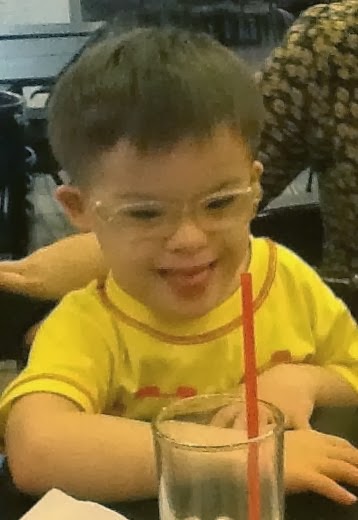Tuesday, November 6, 2012
Hypospadia and G6PD Deficient
At birth the pediatrician told me Mirage has Hypospadia.
What is Hypospadia?
Hypospadias is a birth defect in boys in which the opening of the urethra (the tube that carries urine from the bladder to the outside of the body) is not located at the tip of the penis.
In boys with hypospadias, the urethra forms abnormally during weeks 8–14 of pregnancy. The abnormal opening can form anywhere from just below the end of the penis to the scrotum. There are different degrees of hypospadias; some can be minor and some more severe.
The type of hypospadias a boy has depends on the location of the opening of the urethra:
Subcoronal: The opening of the urethra is located somewhere near the head of the penis.
Midshaft: The opening of the urethra is located along the shaft of the penis.
Penoscrotal: The opening of the urethra is located where the penis and scrotum meet.
Boys with hypospadias can sometimes have a curved penis. They could have problems with abnormal spraying of urine and might have to sit to urinate. In some boys with hypospadias, the testicle has not fully descended into the scrotum. If hypospadias is not treated it can lead to problems later in life, such as difficulty performing sexual intercourse or difficulty urinating while standing.
It is estimated that each year about 5 boys out of every 1,000 born in the United States have hypospadias.
After explaining to us about Hypospadia he told us our son can have an operation to correct it.We told him No Operation.
He was also positive for G6PD Deficiency the result of the new born screening Test.
G6PD deficiency is an inherited condition. If someone is G6PD deficient their body does not produce enough of the enzyme glucose-6-phosphate dehydrogenase (G6PD).
G6PD helps red blood cells to function properly. G6PD also protects red blood cells from certain substances that are harmful to the body. If a person with G6PD deficiency is exposed to these substances, their red blood cells can be damaged or destroyed.
G6PD deficiency can be serious if it is not diagnosed. Otherwise, with proper care and the right precautions, a child with G6PD deficiency can live a normal and active life.
Subscribe to:
Posts (Atom)
